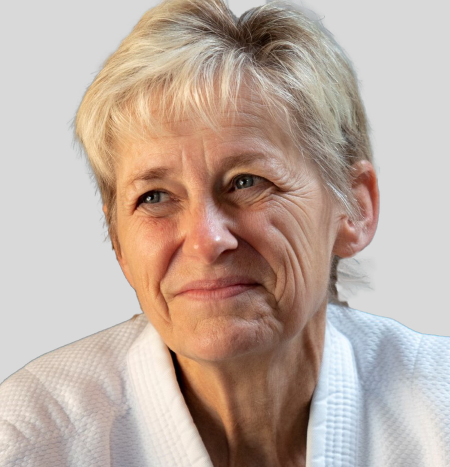Zen & Jazz: Wisdom Traditions for Leadership
Ginny Jiko Whitelaw
Greg’s last post provided a wonderful synopsis of some of the special moments from our Blue Sky Leaders full-day workshop a couple of weeks ago in Pacific Grove, CA. It was one of the most rewarding workshop experiences we’ve facilitated to date. Greg shared the connections made through the JLP Trio’s Layered Listening exercise for Big Ears and the plethora of polarities revealed as we laid out the cultural methodology that grounds the JLP jazz model.
That weekend’s phase of study was for the Blue Sky leaders to explore how different wisdom traditions—from Zen to Jazz—inform authentic, responsive leadership in complex times. The weekend’s residency included a full-day workshop on Zen leadership, led by Ginny Jiko Whitelaw, CEO and Founder of the Zen Institute for Leadership. Ginny is a Chosei Zen priest and roshi, an author, and a former senior leader at NASA. We were intrigued, so we accepted the program director’s offer to attend and observe Ginny in action the day before our workshop. We discovered just how synergistic Zen leadership is with our jazz model.
Ginny began by framing Zen as the alignment and unity of mind and body as one—as an embodied whole system. This wisdom of connectedness resolves the illusion of separation. She also noted the following:
Zen leadership as authentic self-expression that creates value. This aligns with the JLP practice of “Your Sound,” through which you identify and maintain consistency of your own voice and style to make unique contributions.
Leaders should “Play all out to help make sense” through self-expression. I related this to musicians improvising to explore possibilities by creating and extending ideas with absolute focused attention in the moment.
Self and others are interwoven. Jazz leadership is a relational model that harmonizes individual excellence with collective achievement, creating a dynamic framework where personal mastery and collaborative success mutually reinforce one another.
Unconditional positive regard is how our interactions should be ideally grounded. This connects directly to our Big Ears Tuning In process of soulful, generative listening with the person’s best self in mind.
Resonance as the key to relationships. She defined resonance as vibrating with universal frequencies and rhythms. Sound is universal. You feed the field constantly through coherence. Leadership builds resonance, which enables flow. In jazz, shared values and vision create the foundational rhythm of resonance that enables individual improvisation while maintaining group coherence.
Ginny declared that, “Leaders create the future and bring it into the present.”
Zen and jazz leadership recognize that authentic leadership isn't about controlling outcomes, but about creating the conditions where something greater than the sum of individual contributions can arise. Both traditions illuminate leadership as a practice of conscious presence in service of collective emergence.
To navigate complexity with groundedness and flow, these wisdom traditions offer profound guidance: Stay present. Listen deeply. Trust the process. And remember that the most beautiful music—whether in jazz or in leadership—emerges not from rigid adherence to the score, but from the courage to improvise together in service of something larger than ourselves.


